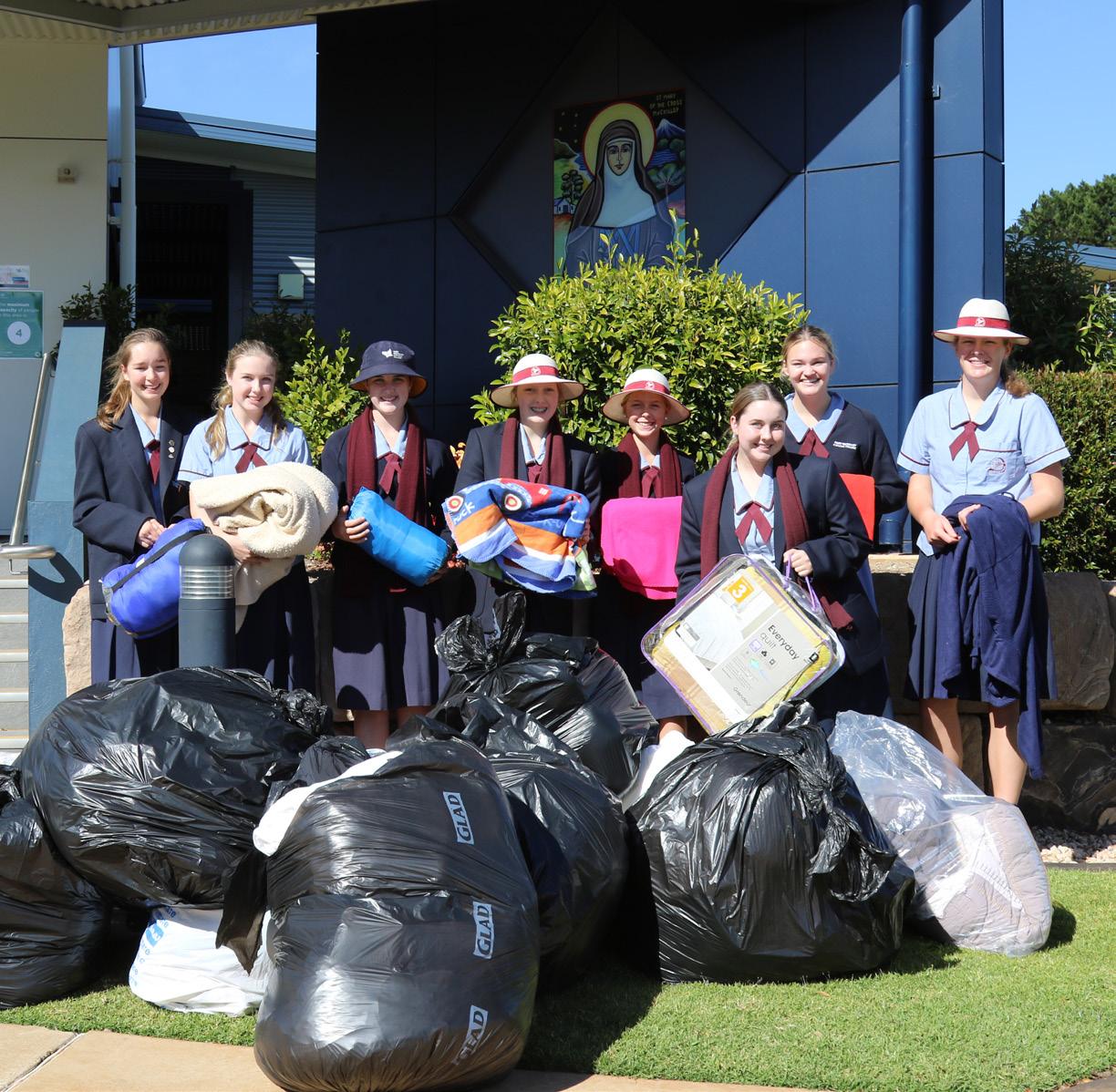
3 minute read
HUMANITIES DEPARTMENT
from 2022 Yearbook
LIZ FRAME | MIDDLE LEADER HUMANITIES
It has been a year of growth and planning in the Humanities department this year.
We have been very busy this year, initiating a variety of creative tasks across Years 7 -10 History and Geography classes to provide real – life, alternative learning opportunities for our students to engage with. As part of the goals of the Humanities department, it is essential that we prepare students with concepts and events of the past, present and future to allow them opportunities to become critical thinkers with inquiring minds.
It is these inquiring minds which will be an essential part of life after school, and by fostering this as they move through their Humanities classes in the senior school, we are providing valuable and necessary skills which will be in demand in years to come. Importantly, we have also allowed students to use any medium to complete these tasks, which generates motivation for them to use skills which they feel most comfortable with.
These tasks have included activities such as creating a natural hazard and demonstrating and analysing its impact on the communities, town planning activities where population booms have to be considered to ensure sustainability of resources and capturing reflections of a world at war to demonstrate the impact on human beings.
These mediums have been through art, photographs, computers, construction, and a range of other forms which will also be highly sought-after skills as students venture into their life after school. Of course, students have also been challenged through traditional assessments such as source analysis responses, research essays, exams and research reports.
We are also starting to plan for the transition to the new ACARA Curriculum Version 9 for students in Years 7 -10 which needs to be implemented by 2026. We know this will provide many opportunities to get students engaged more creatively across the units of study.
There have been quite a few changes to the Humanities and Social Sciences Curriculum, and our goal is to plan and rewrite our units and assessment tasks during 2023 and implement it in 2024 starting with years 7 and 8. The new curriculum offers more opportunity for students to examine our own History, as well as crucial world history, which is paramount if we are ever to build a truly inclusive and equitable world.
This year we were lucky enough to secure the services of a local medieval re-enactment group – the Tyr Warriors. In Year 8 History, students study Medieval Europe and the Black Death, spending a little bit of time learning about knights, what they wear, how they become knights and the battles they had. Year 8 students spent a day with Jaccob and his team, being able to dress up in medieval armour, learn the history of medieval armour, play a series of medieval and Viking games, and watch the Tyr warriors battle it out with each other.
I think the highlight of the day was when Jaccob suggested that Mrs Frame dress up in all the gear and then select a student who she would like to battle it out with. I can certainly vouch for the fact that the armour is extremely heavy, especially the helmet, so heavy in fact it kept falling over my eyes and I couldn’t see a thing. Of course, this was the excuse I used when I was completely outdone by legendary medieval warrior Cameron Young, who, although he gave me a good whooping, made sure I was OK afterwards.
Students finished the day by sharing a medieval lunch together prepared by our wonderful tuckshop staff. It is hoped that this day will become a tradition to finish second term for Year 8 students.
Next year we also hope to introduce a variety of excursions or immersion days for all History and Geography students. One of the ideas on our radar is for the Year 9 and 10 Geography elective students who will go to the coast to complete a field study and research component of the course.
This will involve an overnight stay, with Griffith University coastal educators who will take students through the impact of weather and erosion on the coast and how this will impact coastal communities for the future. We also hope to book Living History who are renowned for providing a hands on opportunity for students to engage with their lesson content through re-enactments, artefacts and getting students involved.
However, the Humanities department would not run like a finely tuned engine to provide these learning opportunities if it were not for the wonderful and talented Senior College Humanities teachers. They have been amazing in supporting me in my first year at the College.

My sincere thanks to Mrs Farrow, Mrs Quinlan, Ms Niemeyer, Mrs Cotter, Mrs Puhakka, Mr Cavanough and Mr Connolly. I sincerely thank you for the time, effort and energy you have invested into your classes and the department and look forward to having you all back on board next year. Thank you also to the wider College community whose support has been highly appreciated and valued.
Finally, I have thoroughly enjoyed my first year at Mary MacKillop College. I am excited about big things next year in the Humanities department.




We wish you all happy Christmas and safe holiday and look forward to seeing you all in the new year.











